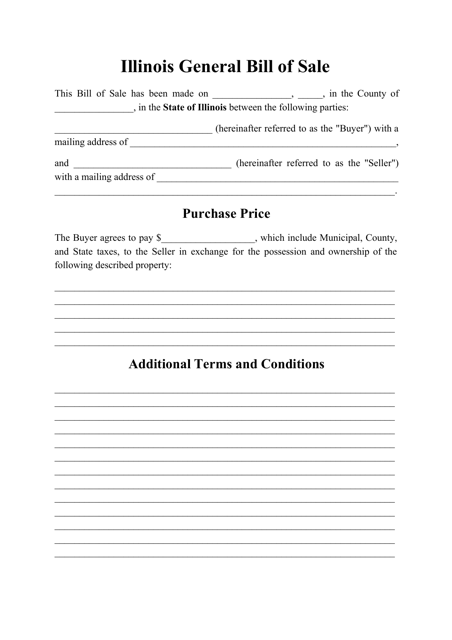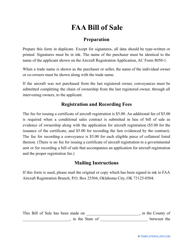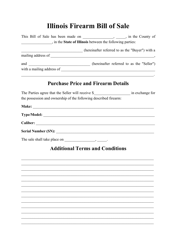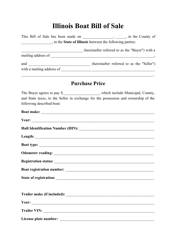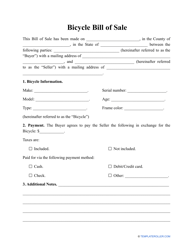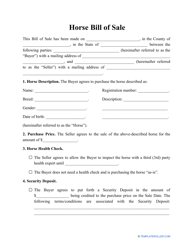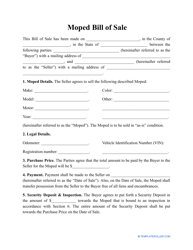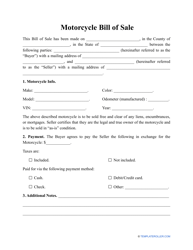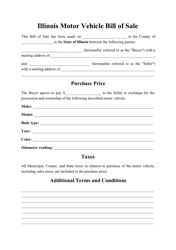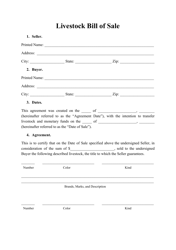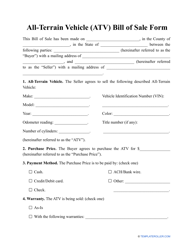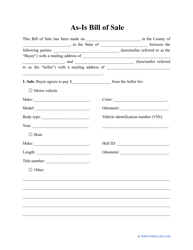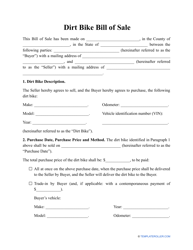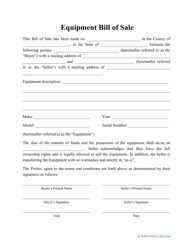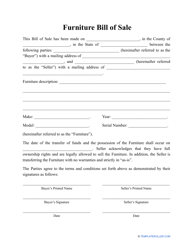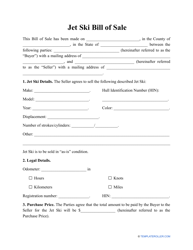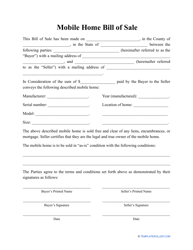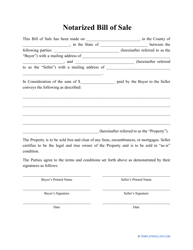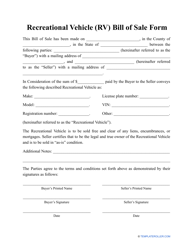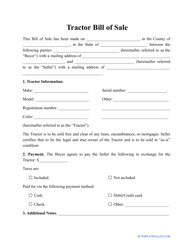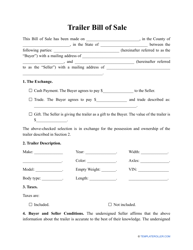Generic Bill of Sale Form - Illinois
What Is an Illinois Bill of Sale?
The Illinois Generic Bill of Sale is a legally binding agreement that documents the transfer of different kinds of items from one party, usually known as the seller or the transferor, to another, called the buyer or the transferee. This document must contain all of the important information pertinent to the deal. The State of Illinois does not provide any government-issued templates you can use to record the sale of the items you own.
You can use our online template and customize it according to your needs or download the Illinois-specific Generic Bill of Sale through the link below.
Does a Bill of Sale Have to Be Notarized in Illinois?
No, the State of Illinois does not require a notarized Bill of Sale but if you want to add an extra layer of security to your deal, you may include sections for witnesses' signatures and/or a notary public's certification. This can save any potential trouble which might occur should the seller or buyer contest the transaction at a later point in time.
Does Illinois Require a Bill of Sale?
The state does not require filling out the form for every item transfer, especially if you sell any minor personal property. On the other hand, this document is very useful for both a seller and a buyer. A buyer can use it as a purchase receipt since it contains the exact date of sale and the sales price. The properly completed Bill of Sale is legal evidence that substantiates a buyer's rights for the described item.
For the document to be effective protection against possible illegal claims, make sure it contains the following information:
- Identification information of the seller. The minimal required information is the name and physical address but you may add the driver's license number and daytime phone number as well;
- Identification information of the buyer. Include the same details about the buyer;
- Description of the sold item. Provide the details necessary for clear identification of the sold item, e.g., color, size, make, year, serial number, and others. If the item has any defects, you inform the buyer and enlist the defects on the Bill of Sale;
- Sales price. You should indicate the price, both in words and digits;
- Date of sale;
- Special conditions. If you and the buyer agreed upon any specific terms (e.g., the payment is made in several transactions, the item is given as a gift), describe them in the document;
- Signatures of the seller and the buyer.
Prepare the document in two copies. Give one to the seller and keep the other with your documentation. These documents contain the important details of the transfer that can come in handy when it is time to fill out their tax returns. The Bill of Sale releases the seller from any liability for the described item and its use since the date indicated in the document. For additional protection, the sellers carefully describe the sold item and add a clause that the buyer purchases the good "as-is." These precautions will help the sellers to avoid possible fraudulent claims of the buyers.
Haven't found the form you are looking for? Take a look at these related forms below:
